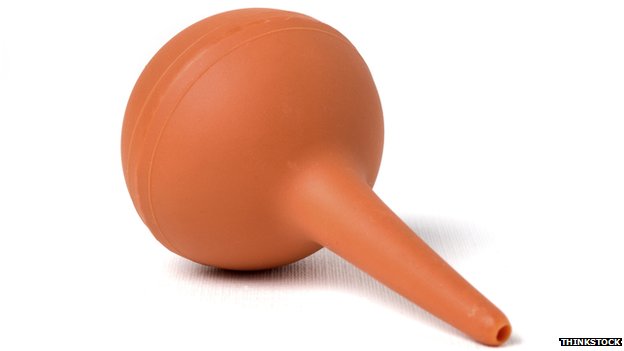Countrygirl
Senior Member
- Messages
- 5,466
- Location
- UK
http://www.bbc.co.uk/news/magazine-27503660
The brave new world of DIY faecal transplant
By William KremerBBC World Service

Continue reading the main story
Health Check
- Why good memories stick
- Do middle-aged men need HRT?
- Goggles help surgeons ‘see’ tumours
- How cancer virus was discovered
In April 2012, Catherine Duff was ready to try anything. She was wasting away with crippling abdominal pains, nausea, vomiting and diarrhoea so severe she was confined to the house. At 56, in the US state of Indiana, she had come down with her sixth Clostridium difficile infection in six years.
"My colorectal surgeon said: 'The easiest thing would be to just take your colon out.' And my question was: 'Easier for whom?'"
Appalled at the idea of losing her large intestine, Duff's family feverishly searched for alternative treatments on the internet. One of them turned up an article about a doctor in Australia, Thomas Borody, who had been treating C. diff with an unusual process known as faecal transplant, or faecal microbiota transplantation (FMT).
Clostridium difficile is an obnoxious microbe, usually kept in check by other bacteria in our guts. Problems arise when antibiotics remove some of these "friendly" bacteria, allowing C. diff to take over. One doctor compares it to the hooligan on the bus who is prevented from doing any harm by the sheer number of people on board. A course of antibiotics is equivalent to some of these people getting off at a stop, allowing the hooligan to run wild. About 50% of a person's faeces is bacteria, and a faecal transplant is like a whole new busload of people - the friendly bacteria - being hustled on board.
Read More Here.
Last edited by a moderator:
